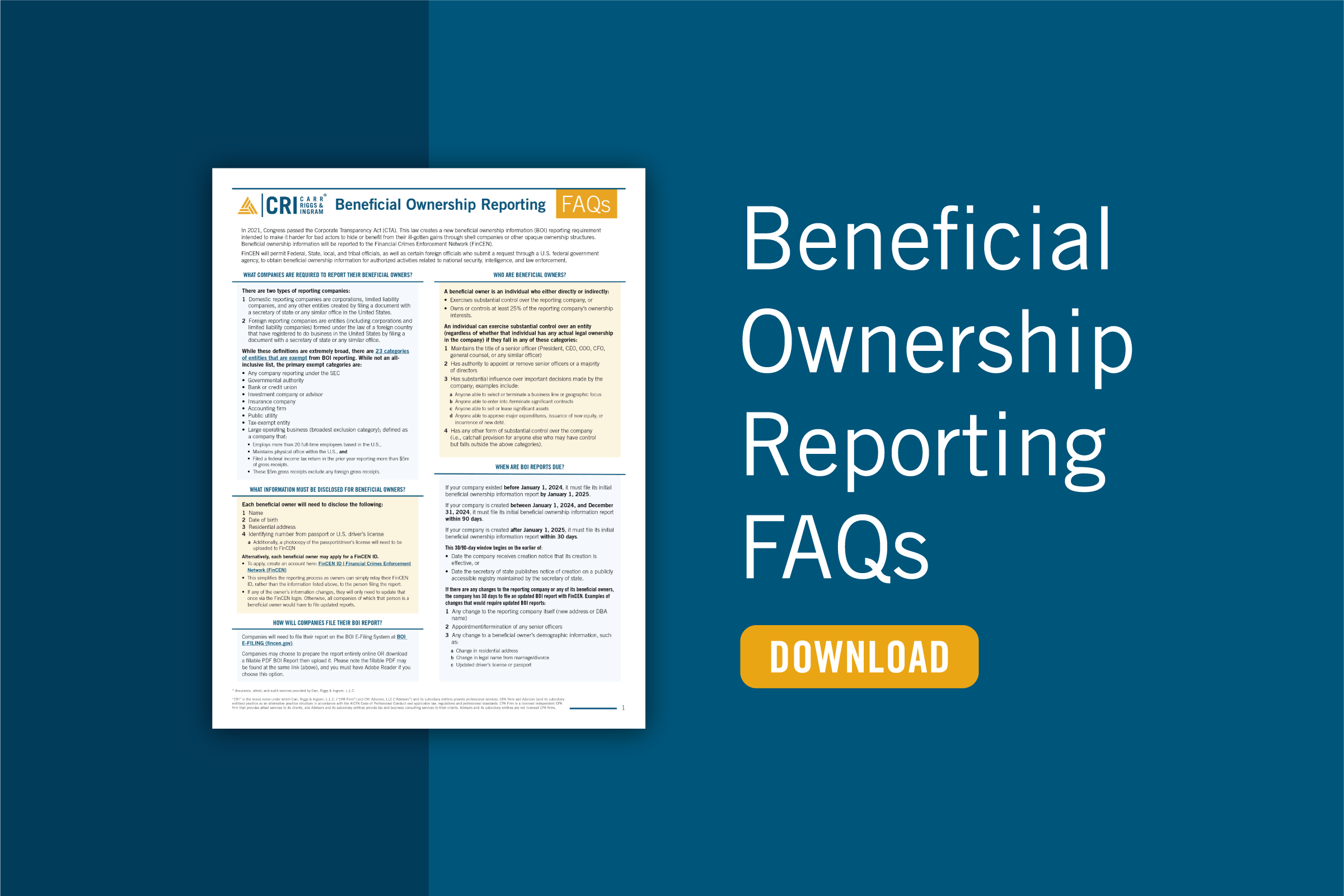Why Do M&A Transactions Fail?
- Contributor
- Todd Giustiniano
Jul 24, 2024
Selling a business is like running a marathon. You wouldn’t want to trip on your shoelace in the final mile. Unfortunately, many potential mergers and acquisitions (M&As) don’t make it to the finish line. Deals can evaporate, seemingly into thin air, after both parties have invested significant time and money.
Cooler M&A Market Conditions Lead to Failed Deals
After a historic boom in 2021, the pace of M&As began slowing in 2022 and has returned to more normal conditions. Buyers are no longer willing to pay inflated prices or gloss over potential liabilities and unaddressed concerns in a target company. The result is a less forgiving market with a higher potential for deals to die, as buyers are willing to walk away from a deal that doesn’t make financial sense. Deal fatigue can also take its toll; sellers might decide they simply can't go through another round of diligence.
Whoever closes the door on the deal, a failed transaction represents lost time and money for everyone involved. To avoid wasting effort and resources, sellers can take steps that increase their chances of a successful transaction. Understanding why deals fail is an excellent place to start.
Four Reasons for M&A Failures
With inflation easing and the Federal Reserve seemingly poised to begin lowering interest rates, the remainder of 2024 looks ripe for increased M&A activity. But many of these deals will not make it to the finish line. The specific set of circumstances that leads to M&A failure is unique to each situation. Still, a breakdown in negotiations often stems from one of four fundamental problems.
- Lack of clarity around the seller’s objectives. Sellers often put the business on the market before making necessary preparations, including working through the financial and emotional implications of selling the business. The seller or the seller’s family members may have shifting goals around price or other aspects of the sale, such as their future involvement or deal structure. Intrafamily conflicts about how and when to sell — or whether to sell at all — can throw up hurdles that slow down or fully derail a sale.
- Poor-quality financial statements. Often, inadequate preparation also means a seller lacks the financial documentation that a buyer needs to conduct proper due diligence. Missing records, non-current information, and other indications of poor record-keeping can leave buyers in the dark about financial performance, potential regulatory compliance risks, legal concerns, and more. Wary of unknown risks, savvy buyers move on in search of a deal that offers more clarity about what they’re acquiring.
- Misalignment between pricing expectations of buyers and sellers. Sometimes, the pricing expectations of buyers and sellers are too far apart to resolve. The parties may enter the conversation in good faith, but if they are driven from the outset by two differing sets of clashing assumptions, that gap can prove insurmountable. In other cases, external factors such as the cost of capital may change as negotiations drag on, making it less likely that the parties can find common ground.
- Unrealistic seller expectations. Small and midmarket M&A deals are typically lopsided. Whereas buyers generally are familiar with the M&A process, with multiple deals under their belt, the transaction often represents a once-in-a-lifetime event for sellers. Lack of experience coupled with emotional involvement in the business can lead to unrealistic expectations and an unwillingness to budge, even in the face of changing economic factors or issues discovered during due diligence. If you refuse to adjust your pricing expectations to reflect legitimate concerns, lower valuations, or shifting market conditions, don’t be surprised if the buyer walks.
Boost the Odds of a Successful Transaction
Preparing yourself and your business properly before going to market is crucial.
Before proceeding down the M&A path, take a beat to consider whether this is what you and your family want. Is your spouse on board with your decision? What about other family members? Once you’re clear about your objectives, start with your end in mind and assess all the alternatives. Are you prepared to walk away from the business, or do you want to retain some involvement? Thinking through your options and preferences will allow you to fully commit when you find the right deal.
Once you’ve decided on the M&A path, performing your own sell-side diligence can make the company highly attractive to buyers, boost the sales price, and facilitate a quick sale. Your preparations should include a careful review of books and records to ensure everything is accurate, fully documented, and up to date. Also, consider obtaining a business valuation or a quality of earnings report (or both) to help potential buyers accurately gauge the value of the business.
Protect Yourself and Your Business
Engaging M&A advisors to help you prepare is a crucial step that many small business owners overlook. Experienced M&A professionals can effectively shepherd your business through each stage. Their vast experience means they can recognize potential snags, offer solutions, and help keep the deal on track.
Your investment in experienced M&A guidance also means you have a team who knows the ropes and always acts in your best interests, helping you anticipate and address buyers’ questions and concerns before you even list the business. Just as important, professional M&A advisors in your corner can level the playing field so that more savvy buyers can’t take advantage of your relative lack of M&A experience.
Finally, it’s important to remember that business transactions are all about relationships. Maintaining a trusting relationship is critical, especially if you plan to stay with the business for a year or two after the sale. Be clear about any potential risks or unaddressed issues a buyer should know about. Remember, you can resolve most concerns as long as you're up-front about them.
Your CRI advisor can help you position your business for sale and get the most value from your M&A transaction. Reach out today to learn how we can help.










































































































































































































































































































































































































































































